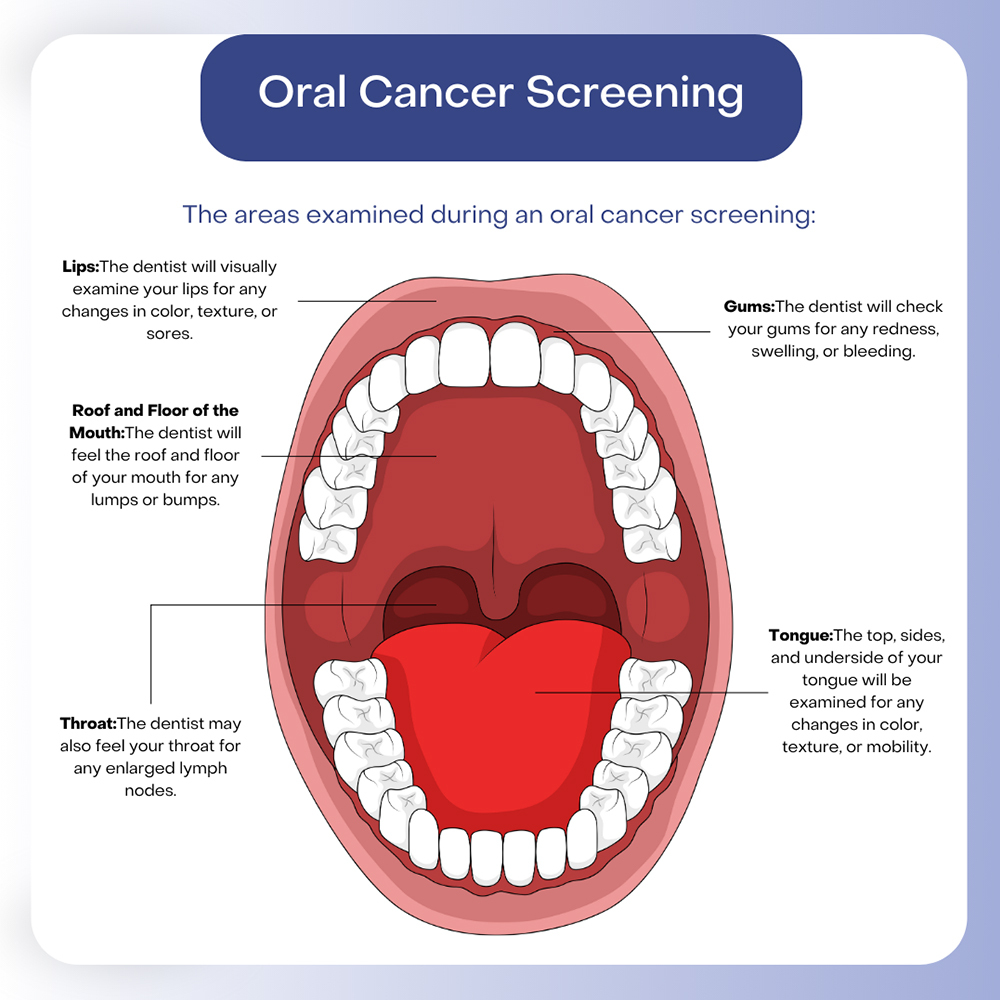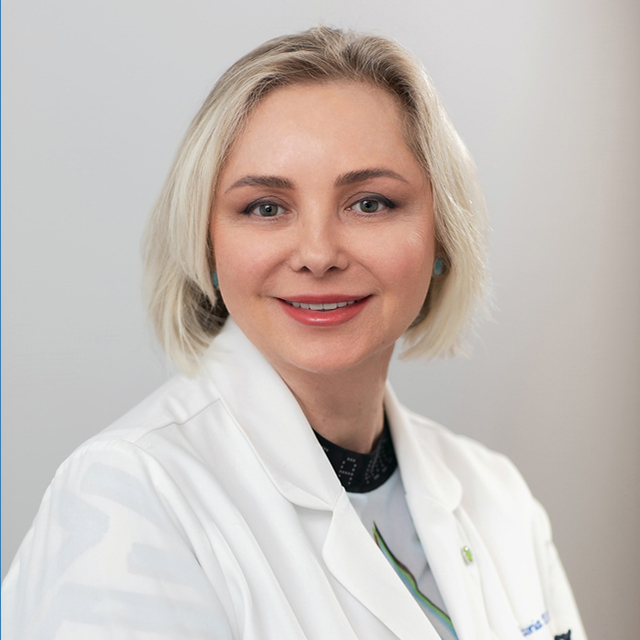Table of contents
Many cases of oral cancer are diagnosed late in the day when the condition has already progressed significantly, leading to higher fatality rates. The five-year survival rate of oral cancer is approximately 57%.
It’s most likely that your dentist is the only medical professional who regularly examines the inside of your mouth, and dentists are specially trained to detect early symptoms of this disease. Regular oral cancer screenings can help detect this disease earlier so you may receive less invasive treatment that could be more successful in the longer term.

Risk factors for oral cancer can include:
While certain conditions can increase the risk of developing oral cancer, around 25% of people diagnosed have no known risk factors.
Potential signs of oral cancer can include:
Most of these symptoms will be due to other causes, such as an infection, but please make an appointment to see us if you have these symptoms and they persist longer than two weeks or are causing you discomfort or pain.
The sooner we can see you, the sooner we can hopefully put your mind at rest and treat the problem effectively.
During a screening test for oral cancer, we look closely inside your mouth.
The areas that are checked include:
These areas are examined visually and we also use fingers to gently feel for any signs of lumps or bumps or thickened areas of tissue that may require closer investigation. Abnormalities can include tissues that have changed color, appearing white or red rather than pink.
If you have noticed any lumps or bumps or areas that feel tender in your mouth, let us know so we can examine them more closely.
If we spot something, it’s most likely nothing to worry about, but we may want to take a small biopsy, where a section of the tissue is removed and sent to a pathologist for analysis.
Another potential test is a brush biopsy, where we collect cells from your mouth using a small brush, wooden stick, or piece of cotton. These cells are then analyzed to check for any signs of abnormalities or precancerous changes.
We can then arrange a follow-up visit to discuss the results. You will be referred to a specialist for more advanced and expert care if necessary.
Checking your mouth for oral cancer signs at home isn’t a substitute for a professional oral cancer screening, but it can be useful. You will get to know how your tissues should look and feel when they are healthy, so if you notice anything wrong, you can contact us for a proper screening.
Below are some tips on how to perform a screening at home.
Unfortunately, there is no way to prevent this condition, but you can reduce your risk.
Oral cancer is a fairly common cancer that affects the head and neck, but routine screenings provide the best chance for a timely diagnosis and earlier treatment. We can assess your oral and general health when you visit our dental practice. Based on this knowledge, we can recommend how frequently you should have oral cancer screenings. It is a quick and potentially life-saving test that everyone should have regularly.

My name is Victoria Kushensky. I am a general dentist dedicated to remaining at the forefront of my field. Combining compassionate care with extensive knowledge, I offer cosmetic and general dentistry services as well as advanced root canal treatments.
I earned my Doctor of Dental Surgery (DDS) degree from the esteemed New York University College of Dentistry. Throughout my career, I have honed my skills in various dental procedures, ensuring effective treatment for each patient’s unique needs. I prioritize patient comfort and understanding, taking the time to thoroughly explain procedures and address any questions.
More about Dr. KushenskyMy NJ Dentist: Victoria Kushensky, DDS
385 Prospect Ave Suite 304
Hackensack, NJ 07601
(201) 298-8000